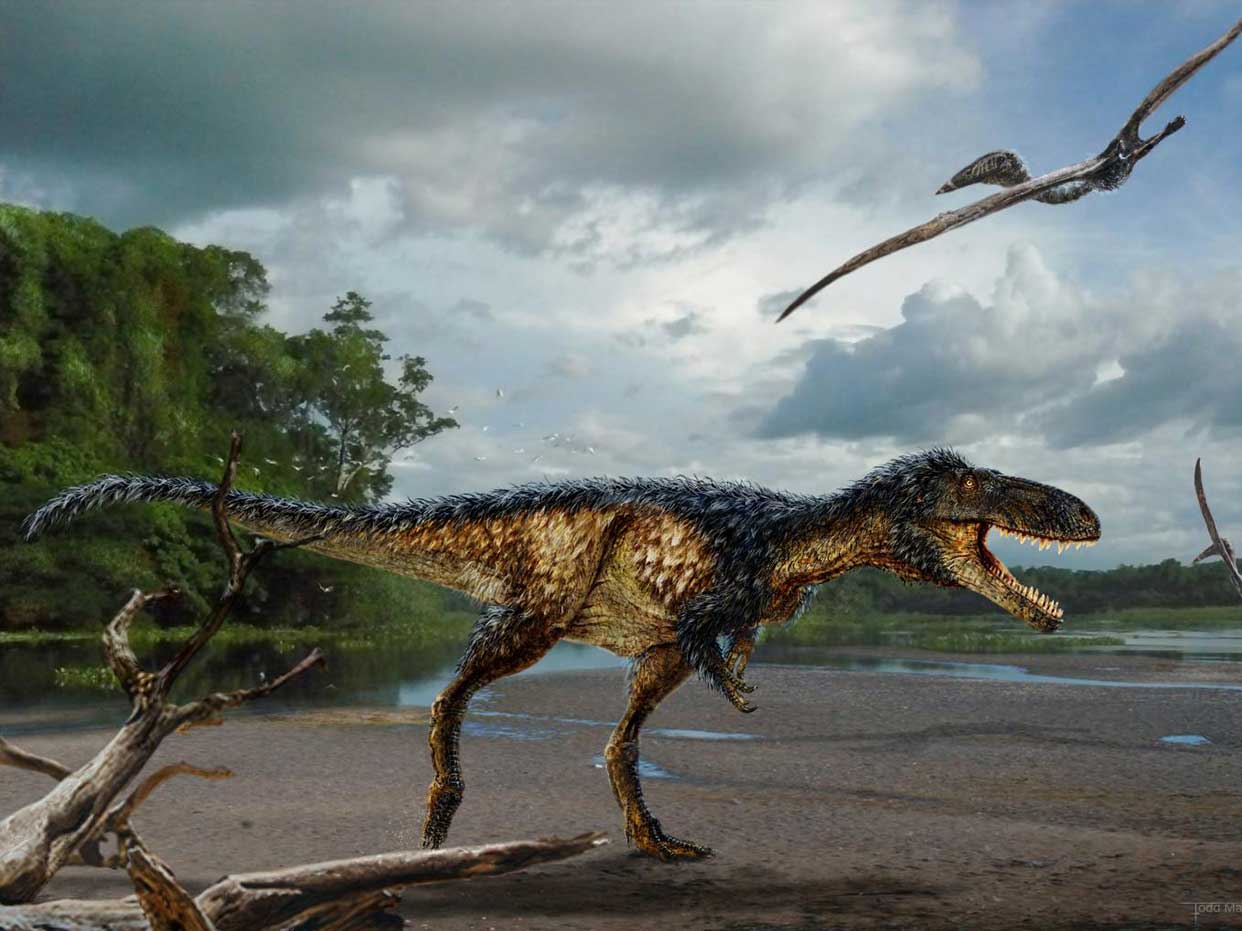Dinosaurs doomed before meteor hit, says new study
Research suggests impact finished off an extinction process that was well under way

A free daily email with the biggest news stories of the day – and the best features from TheWeek.com
You are now subscribed
Your newsletter sign-up was successful
Dinosaurs were heading for extinction long before the meteor impact that is believed to have wiped them out, new research suggests.
The study, published in the Proceedings of the National Academy of Sciences, says dinosaurs had entered a long-term decline 90 million years ago, with species going extinct faster than new ones emerged. Then, 24 million years later, the catastrophic six-mile-wide asteroid strike occurred off the coast of Mexico.
"One of the things that has been long debated about dinosaur evolution is whether they were reigning strong right up until the time of the meteorite impact, or whether there was a slow, gradual decrease in [the emergence of new species] or an increase in extinction before that time," said study co-author Chris Venditti, an evolutionary biologist at the University of Reading.
The Week
Escape your echo chamber. Get the facts behind the news, plus analysis from multiple perspectives.

Sign up for The Week's Free Newsletters
From our morning news briefing to a weekly Good News Newsletter, get the best of The Week delivered directly to your inbox.
From our morning news briefing to a weekly Good News Newsletter, get the best of The Week delivered directly to your inbox.
Lead researcher Dr Manabu Sakamoto, from the University of Reading, said: "While the asteroid impact is still the prime candidate for the dinosaurs' final disappearance, it is clear that they were already past their prime in an evolutionary sense.
"While a sudden apocalypse may have been the final nail in the coffin, something else had already been preventing dinosaurs from evolving new species as fast as old species were dying out."
That "something else" remains unexplained, says Sky News, but it is possibly linked to the break-up of continental land masses and the sustained volcanic activity of the time.
While dinosaurs overall were seeing a sharp decline, the study did show that "duck-billed dinosaurs and horn-faced dinosaurs appear to have been booming just before the meteor impact occurred", says The Guardian.
A free daily email with the biggest news stories of the day – and the best features from TheWeek.com
It is this discovery that has left some scientists unconvinced by the study's findings, adds the newspaper.
"It may be that the effects of the asteroid were a bit worse because you had dinosaurs that maybe weren't as strong in an evolutionary sense as they once had been," said paleontologist Stephen Brusatte, from the University of Edinburgh. "But I think if there was no asteroid, you would still have dinosaurs around today."
-
 The 8 best TV shows of the 1960s
The 8 best TV shows of the 1960sThe standout shows of this decade take viewers from outer space to the Wild West
-
 Microdramas are booming
Microdramas are boomingUnder the radar Scroll to watch a whole movie
-
 The Olympic timekeepers keeping the Games on track
The Olympic timekeepers keeping the Games on trackUnder the Radar Swiss watchmaking giant Omega has been at the finish line of every Olympic Games for nearly 100 years
-
 Epstein files topple law CEO, roil UK government
Epstein files topple law CEO, roil UK governmentSpeed Read Peter Mandelson, Britain’s former ambassador to the US, is caught up in the scandal
-
 Iran and US prepare to meet after skirmishes
Iran and US prepare to meet after skirmishesSpeed Read The incident comes amid heightened tensions in the Middle East
-
 Israel retrieves final hostage’s body from Gaza
Israel retrieves final hostage’s body from GazaSpeed Read The 24-year-old police officer was killed during the initial Hamas attack
-
 China’s Xi targets top general in growing purge
China’s Xi targets top general in growing purgeSpeed Read Zhang Youxia is being investigated over ‘grave violations’ of the law
-
 Panama and Canada are negotiating over a crucial copper mine
Panama and Canada are negotiating over a crucial copper mineIn the Spotlight Panama is set to make a final decision on the mine this summer
-
 Why Greenland’s natural resources are nearly impossible to mine
Why Greenland’s natural resources are nearly impossible to mineThe Explainer The country’s natural landscape makes the task extremely difficult
-
 Iran cuts internet as protests escalate
Iran cuts internet as protests escalateSpeed Reada Government buildings across the country have been set on fire
-
 US nabs ‘shadow’ tanker claimed by Russia
US nabs ‘shadow’ tanker claimed by RussiaSpeed Read The ship was one of two vessels seized by the US military